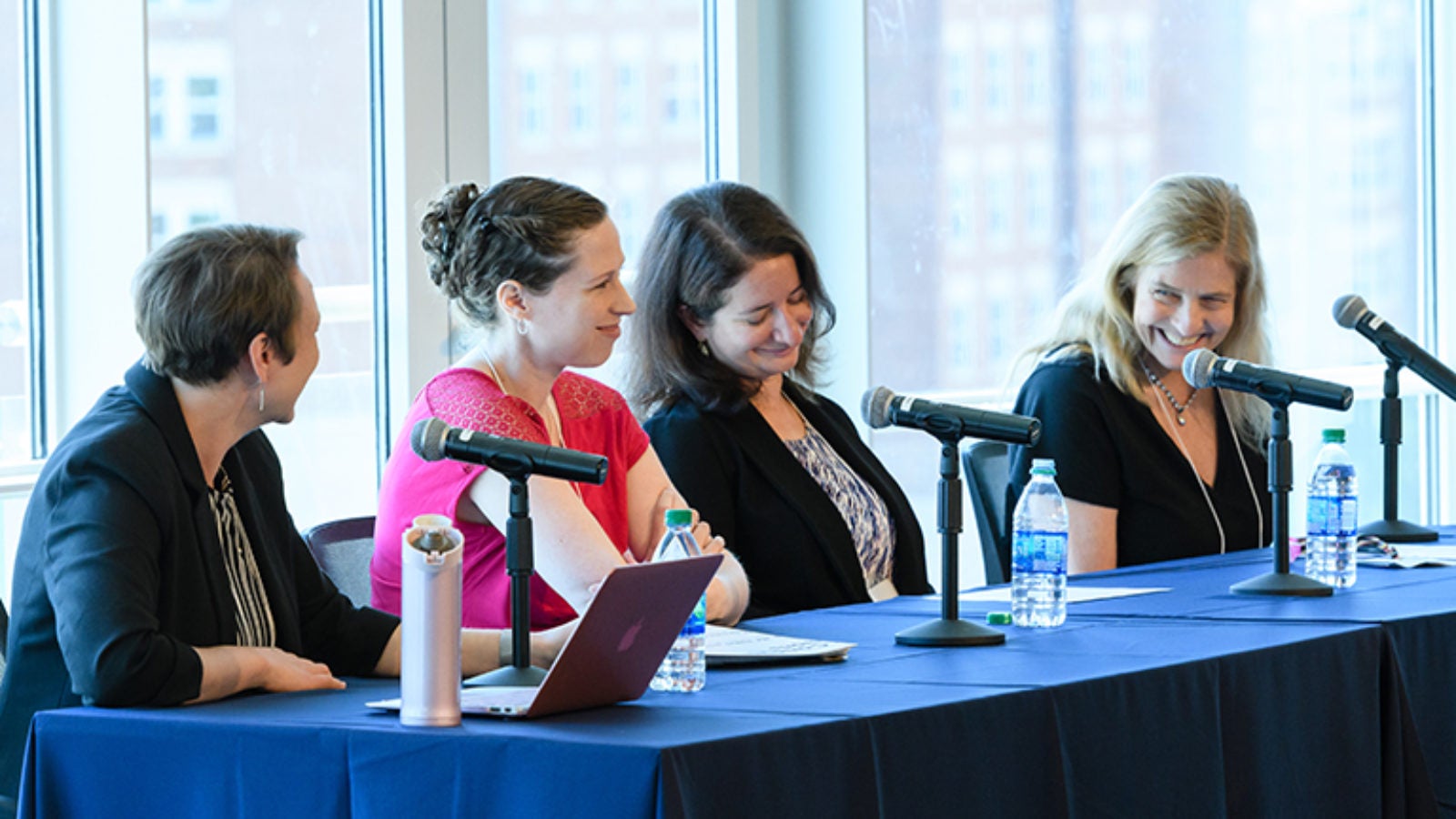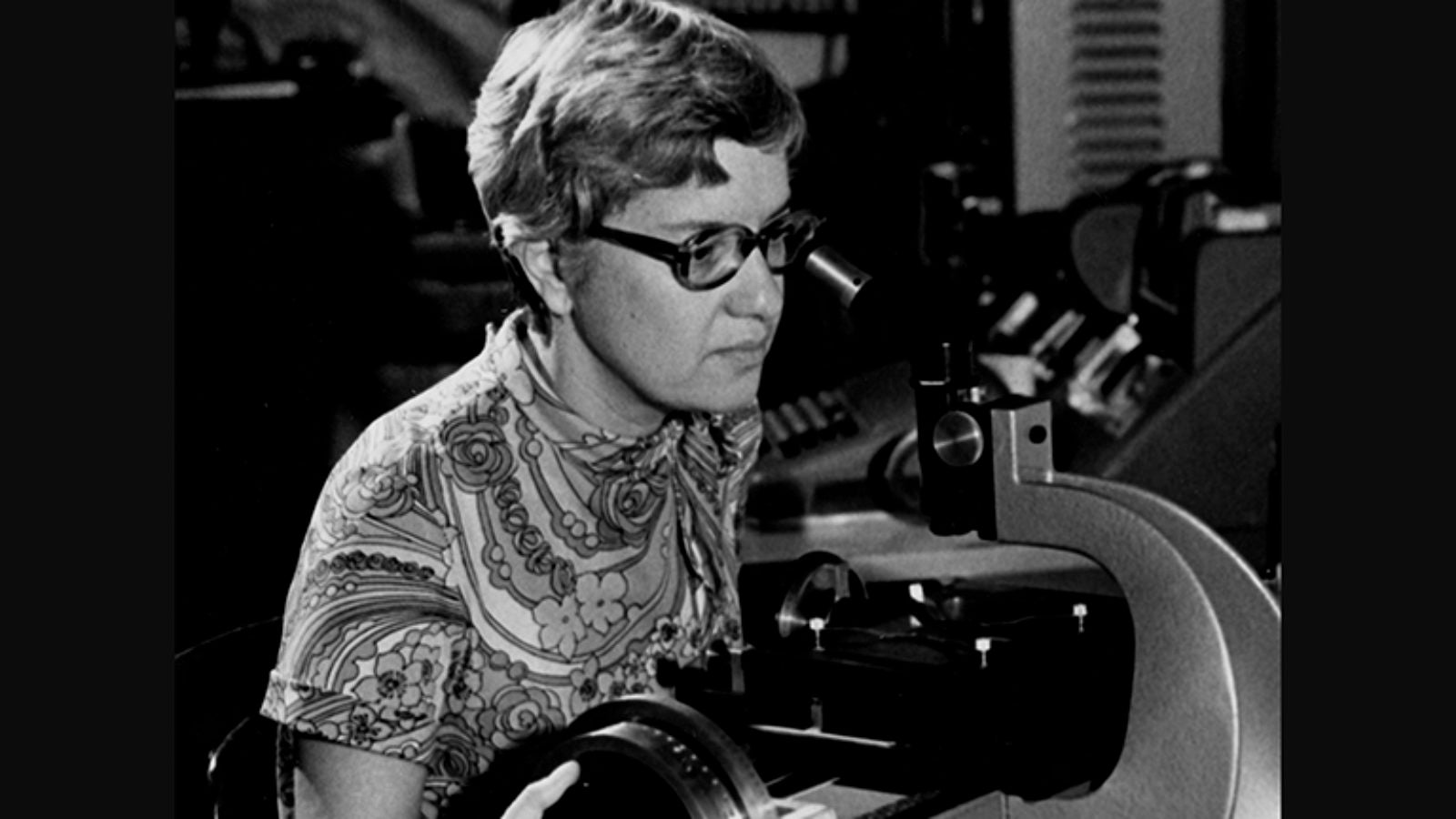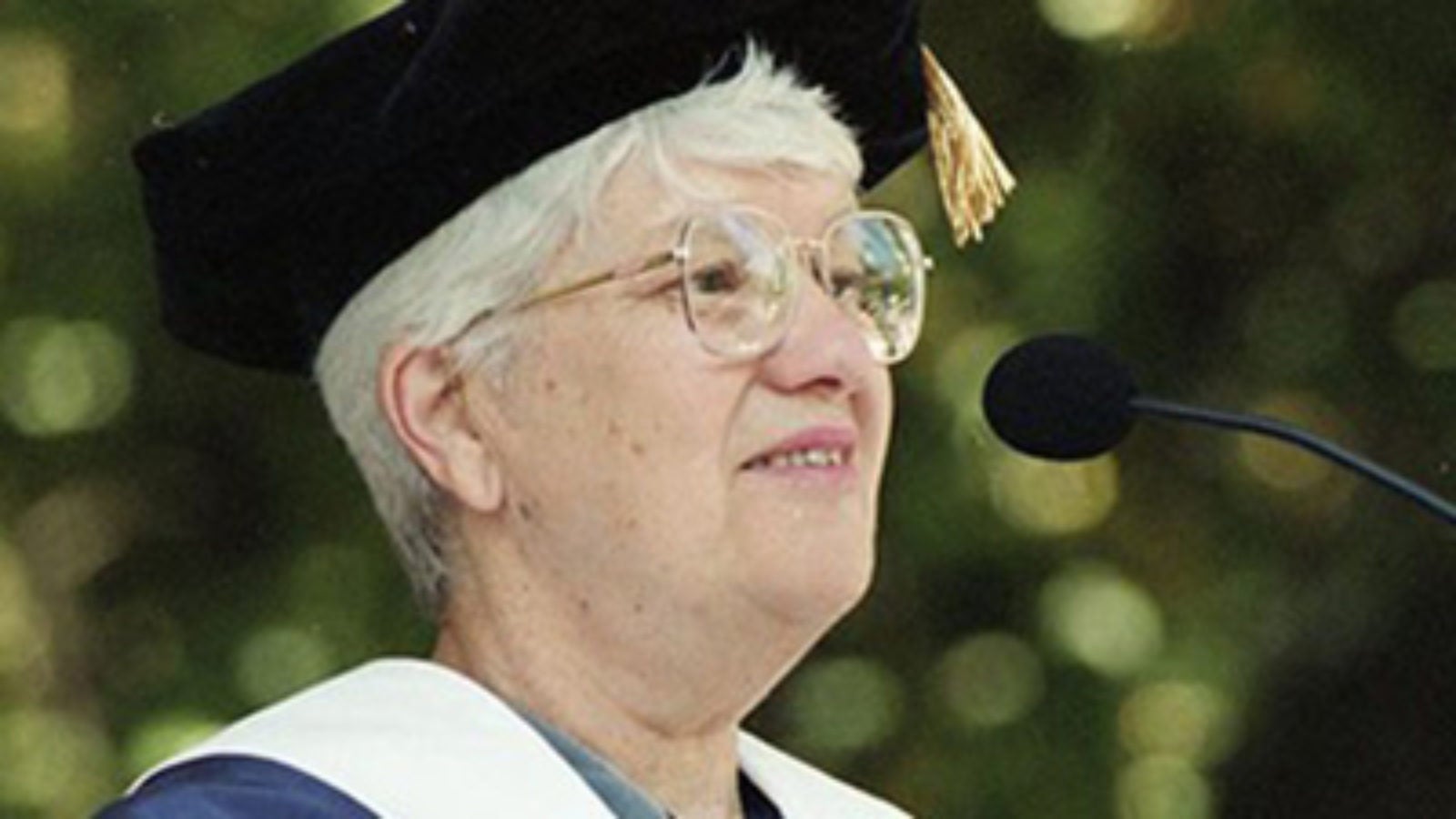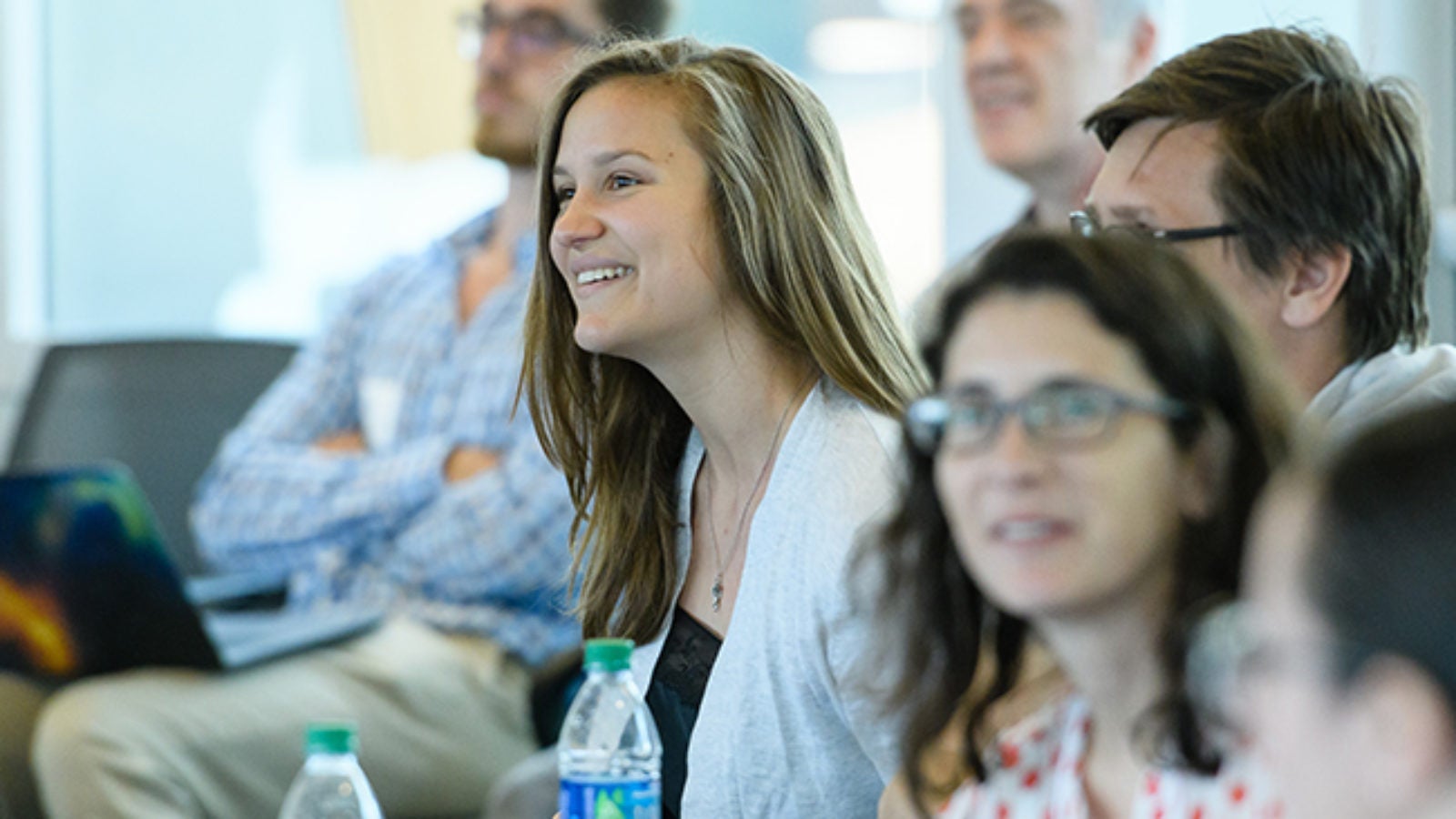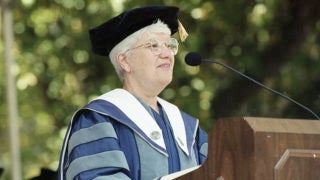Discoveries and Developments
“We were honored to host this impressive collection of leading researchers who presented the latest developments in the field and their connection to Dr. Rubin’s discoveries,” said Ali Whitmer, associate vice president for strategic initiatives.
Other activities at the June 24-26 symposium included a keynote lecture by Princeton University Professor Neta Bahcall for the general public at the Carnegie Institution for Science, an on-campus poster session and a workshop to address current issues facing women in science.
The symposium took place on Georgetown’s campus and was jointly sponsored with Stockholm University, via the Oskar Klein Centre for Cosmoparticle Physics, with additional support from the National Science Foundation, the Heising-Simons Foundation and The Clare Booth Luce Program of the Henry Luce Foundation.
Legacy and Inspiration
France Córdova, astrophysicist and director of the National Science Foundation, called Rubin “a dear friend and a role model” during a symposium address describing NSF’s commitment to interdisciplinary research.
“As seen by your presence tonight, Vera’s legacy continues to be an inspiration to us all,” she said. “She broke down many barriers … We’re building on the foundation that Vera laid throughout her career, and I’m proud to be a part of that effort.”
Abigail Fraeman, a research scientist at the NASA Jet Propulsion Laboratory, gave the keynote address for the session on Wednesday, when she detailed the exploration she led of the Vera Rubin Ridge on Mars with the Curiosity Rover.
Remarkable Pioneering
Fraeman also participated in a panel discussion, “Building on the Legacy of Vera Rubin to Increase Participation of Women in Physics and Astronomy,” moderated by Pearl Sandick, a physics and astronomy professor at the University of Utah, with Katherine Freese, professor of physics at the University of Texas atAustin, and Kathryne Sparkes Woodle, education and diversity programs manager at the American Physical Society.
The symposium’s organizing committee was co-chaired by Freese and Georgetown physics department chair Jeffrey Urbach, and included physics professor Ed Van Keuren.
“We heard from an impressive array of leading researchers and rising stars about how the scientific community has built on Vera’s discoveries to transform our understanding of the universe,” Urbach said. “We also learned the breadth of the scientific and personal impact of her remarkable pioneering career. It was a fitting tribute to the legacy of one of our most influential graduates.”

